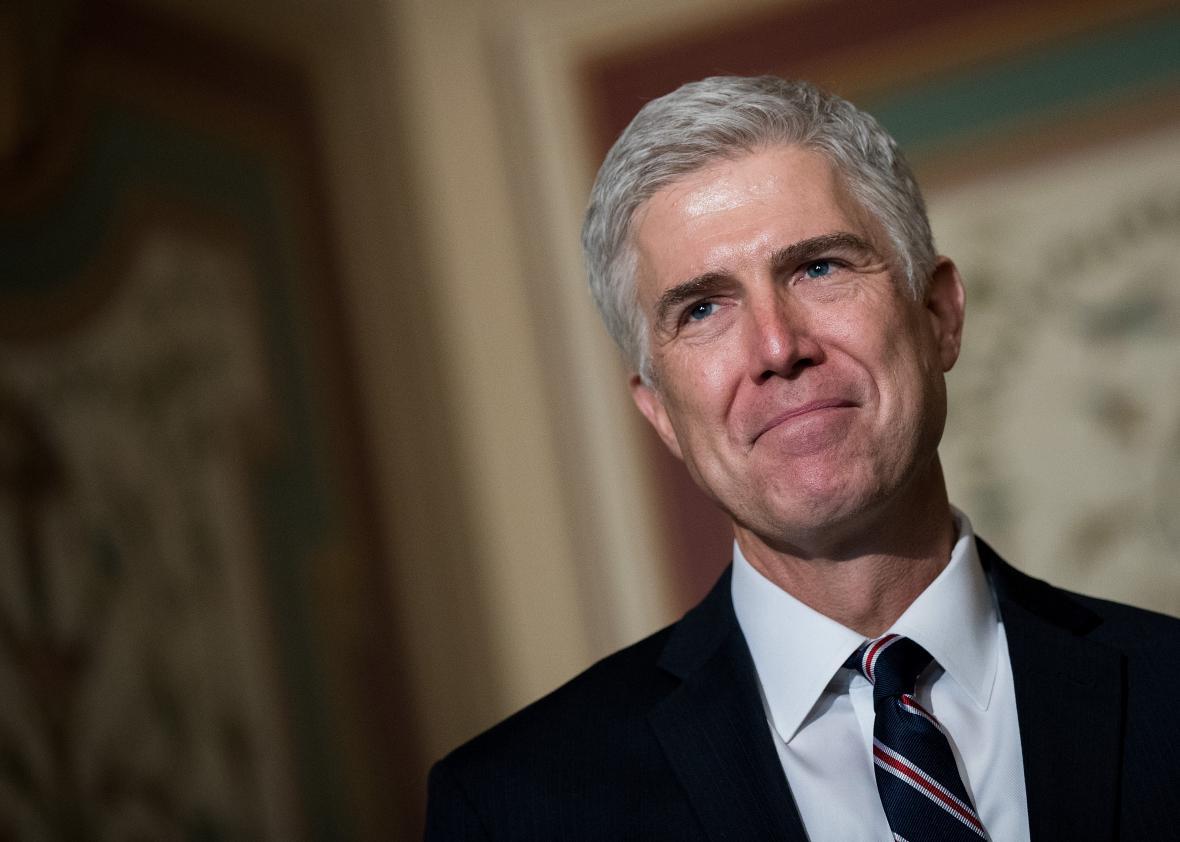On Thursday night, Arkansas executed Ledell Lee—the state’s first execution in 12 years. Lee is one of eight men whom Arkansas originally planned to kill over 11 days before one drug in the three-drug lethal injection cocktail expires. Four of these men have received stays of execution, but Lee’s final plea to the U.S. Supreme Court was rejected by a 5–4 vote. Justice Neil Gorsuch cast the deciding vote allowing Lee to die. It was his first recorded vote cast as a justice of the court.
Lee insisted upon his innocence from the day of his arrest through the night of his execution. He implored Arkansas to let him take a DNA test and compare the results to DNA collected at the scene of the murder he allegedly committed, but the state refused. Lee also presented evidence that his trial attorney provided ineffective assistance of counsel and that the presiding judge lacked neutrality: At the time, the judge was having an undisclosed affair with the assistant prosecutor. (They later married.) Lee’s counsel on appeal appeared in court so drunk that he slurred his words. Moreover, Lee asserted that Arkansas’ use of midazolam to render him unconscious before stopping his heart was cruel and unusual in violation of the Eighth Amendment: The drug may not actually induce unconsciousness and has caused other executions to go terribly awry.
But the Supreme Court split 5–4 on the Eighth Amendment question, with Gorsuch joining the conservatives in permitting Lee’s execution to move forward. Justices Stephen Breyer and Sonia Sotomayor dissented separately, each tackling a facet of Lee’s Eighth Amendment claim. Breyer repeated his now-familiar refrain that capital punishment itself is unconstitutional, highlighting Arkansas’ planned execution spree as evidence. “Arkansas set out to execute eight people over the course of 11 days,” Breyer wrote. “Why these eight? Why now?” He continued:
The apparent reason has nothing to do with the heinousness of their crimes or with the presence (or absence) of mitigating behavior. It has nothing to do with their mental state. It has nothing to do with the need for speedy punishment. Four have been on death row for over 20 years. All have been housed in solitary confinement for at least 10 years. Apparently the reason the State decided to proceed with these eight executions is that the ‘use by’ date of the State’s execution drug is about to expire. In my view, that factor, when considered as a determining factor separating those who live from those who die, is close to random.
I have previously noted the arbitrariness with which executions are carried out in this country. And I have pointed out how the arbitrary nature of the death penalty system, as presently administered, runs contrary to the very purpose of a “rule of law.” The cases now before us reinforce that point.
For her part, Sotomayor once again emphasized the dangers of midazolam, arguing that precedent allows Lee to demand a less cruel alternative. Sotomayor has compared midazolam to “a hangman’s poorly tied noose or a malfunctioning electric chair” and called lethal injection “our most cruel experiment yet.” She cited those concerns in her dissent on Thursday and urged the court to consider Lee’s request for a firing squad instead.
But with Gorsuch’s vote, the court’s conservatives were able to ignore their four liberal colleagues and permit the execution. Lee was given midazolam, then a drug to paralyze and suffocate him—which may have been purchased under false pretenses. Finally, the state administered a chemical to stop his heart. Lee was declared dead shortly before midnight, Central Time. Had one more justice voted in his favor, Lee would still be alive today.
